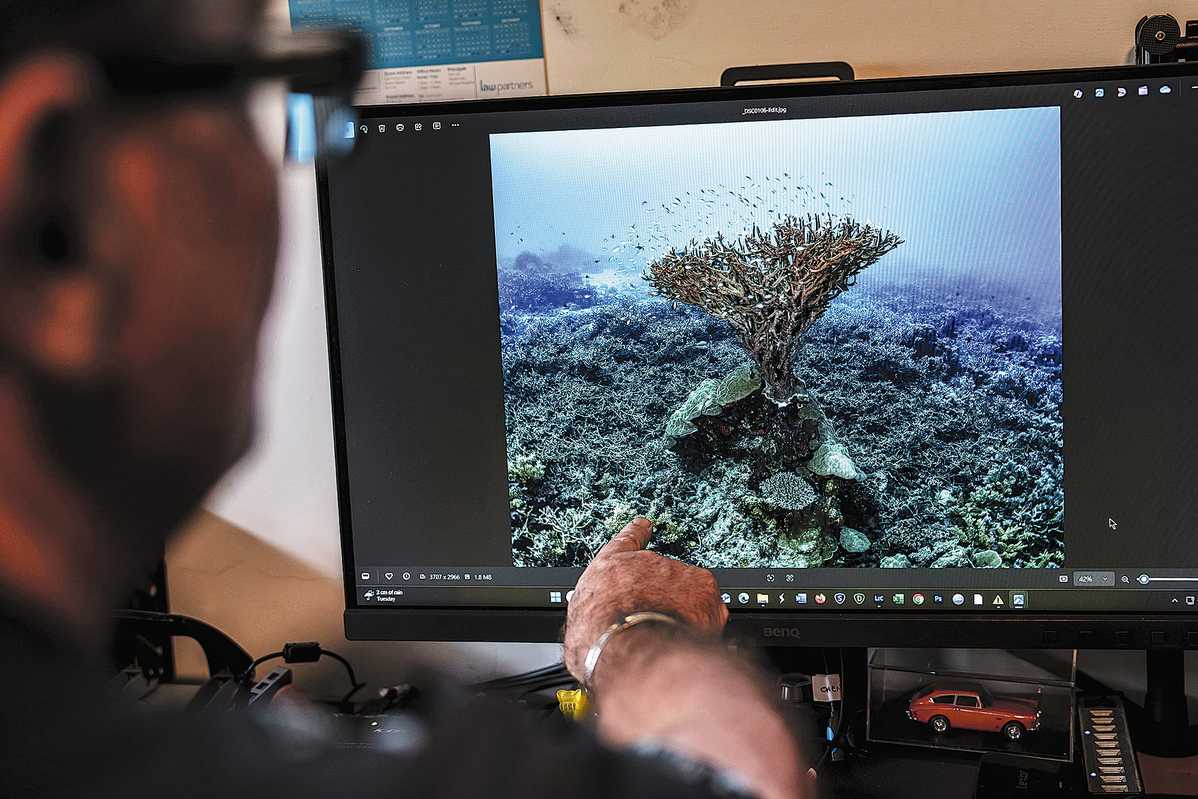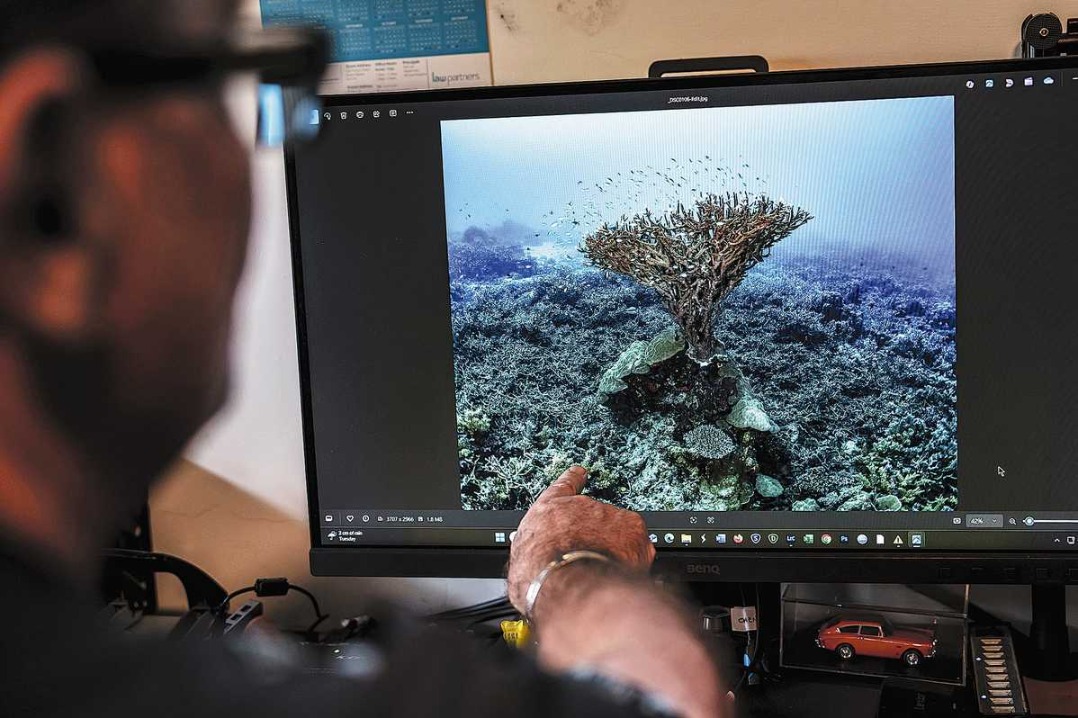Vanuatu turns to world court as climate disasters mount


PORT VILA, Vanuatu — When John Warmington first began diving the reefs outside his home in Vanuatu's Havannah Harbor a decade ago, the coral rose like a sunken forest — tall stands of staghorns branched into yellow antlers, plate corals layered like canopies, and clouds of darting fish wove through the labyrinth.
"We used to know every inch of that reef," he said. "It was like a friend."
Now, it is unrecognizable. After Cyclone Pam battered the reef in 2015, sediment from inland rivers smothered the coral beds. Crown-of-thorns starfish swept in and devoured the recovering polyps. Back-to-back cyclones in 2023 crushed what was left. Then, in December last year, a magnitude 7.3 earthquake shook the seabed.
What remains is a coral graveyard — bleached rubble scattered across the seafloor, habitats collapsed, life vanished. "We've come out of the water in tears," said Warmington, who has logged thousands of dives on this single reef. "We just see heartbreak."
That heartbreak is becoming more common across this Pacific island country, where intensifying cyclones, rising seas and saltwater intrusion are reshaping coastlines and threatening daily life. Since 1993, sea levels around Vanuatu's shores have risen by about 6 millimeters per year — significantly faster than the global average — and in some areas, tectonic activity has doubled that rate.
On Wednesday, Vanuatu will get its day in the world's highest court. The International Court of Justice will issue an advisory opinion on what legal obligations nations have to address climate change and what consequences they may face if they do not. The case, led by Vanuatu and backed by more than 130 countries, is seen as a potential turning point in international climate law.
"Seeing large, polluting countries just continue business as usual and not take the climate crisis seriously can get really sad and disappointing," said 16-year-old climate activist Vepaiamele Trief. "If they rule in our favor, that could change everything."
The opinion will not be legally binding, but could help shape future efforts to hold major emitters accountable and secure the funding and action small island countries need to adapt or survive.
It comes after decades of frustration for Pacific nations that have watched their homelands disappear. In Tuvalu, where the average elevation is just 2 meters, more than one-third of the population has applied for a climate migration visa to Australia. By 2100, much of the country is projected to be under water at high tide.
"The agreements being made at an international level between states are not moving fast enough," said Ralph Regenvanu, Vanuatu's minister for climate change. "They're definitely not being met according to what the science tells us needs to happen."
For children in Vanuatu, climate change is not a theory — it is a classroom, or the lack of one.
At Sainte Jeanne D'Arc School on Efate Island, elementary school teacher Noellina Tavi has spent two of the past three years teaching her students in tents — first after the 2023 cyclones and again following last year's earthquake.
With a shortage of emergency tents, her class was combined with another. Students fidget and lose focus. "It's too crowded," Tavi said. "We can't work peacefully."
When it rains, the tents turn cold and muddy. Anytime a storm approaches, the tents must be dismantled. "That disrupts their education for a whole week," she said.
Back in Havannah Harbor, Warmington still dives the reef he considers part of his family. While much of it is gone, he and his wife Sandy have begun replanting coral fragments in hopes of restoring what is left.
"Our friend is still here," he said. "Life is coming back."
Agencies via Xinhua

































